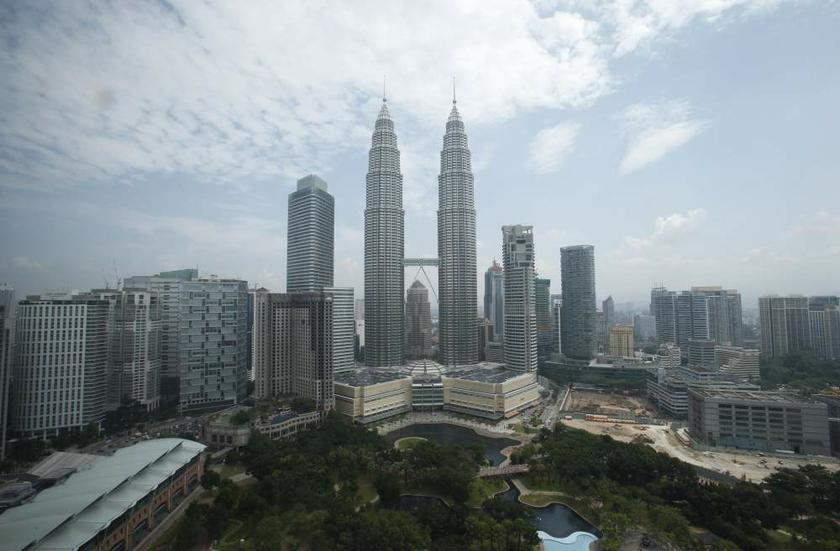KUALA LUMPUR, Sept 22 — Kuala Lumpur provides the best value compared to other global cities for investors looking to buy office space, international property consultancy Knight Frank has said.
Knight Frank Asia Pacific head of research Nicholas Holt said office space in Kuala Lumpur could also be rented for less than in many other cities.
“Well I think we look on both the rental level, but also on capital value if a company wants to buy real estate, Kuala Lumpur is very cost-competitive compared to cities around the world.
“So if you are a multinational company or a Malaysian company, in terms of bang for your buck, what you can get for your money in rental price, KL is very attractive,” he told Malay Mail Online when met after the launch of Knight Frank’s 2017 Global Cities report.
Holt also highlighted Kuala Lumpur’s draw as a city with increasing connectivity options such as the upcoming high-speed rail link with Singapore and links to cities within the Asean region.
According to Knight Frank’s study of 30 global cities, a company that wants to invest in office property here can buy a building at a prime location with more than 390,000 square feet of space for just US$100 million.
Based on capital values of prime office space in the second half of this year and June 30 currency exchange rates, cities on the extreme opposite end of the scale are Hong Kong, Tokyo, Paris, London and Singapore where only property measuring 50,000 square feet and below can be purchased at the same price.
As for rental rates of prime office space, prices for such properties in Asian cities Kuala Lumpur, Beijing and Singapore are expected to go down by 1.1 per cent, 4.4 per cent and 14 per cent over the 2015 to 2019 period owing to new supply coming in, the firm predicted.
InvestKL Malaysia chief executive officer Datuk Zainal Amanshah, who was also present at the same event, saw the slight contraction in prime office rental rates as an opportunity for foreign investors seeking to set up office in Kuala Lumpur.
“When companies look at growth opportunities, they are looking at obviously expanding their market share, but they are also very careful in their bottomline and they look for value for money,” he said.
Knight Frank Malaysia managing director Sarkunan Subramaniam also highlighted that the stable nature of rental rates for prime office space in Kuala Lumpur would give investors confidence.
“If you really look at our past, Kuala Lumpur and Malaysia in general has the least amount of volatility in terms of movement of market.
“We have seen other markets move up 20, 30 per cent, drop 15 per cent in rent, we have seen our neighbours gone through cycles of such nature, whereas KL has been steadily growing,” he said.
Skyscrapers and co-working spaces
In Knight Frank’s study of skyscraper rentals in 24 cities, there was no growth in rental rates for the upper floors of Kuala Lumpur’s commercial buildings of over 30 storeys in the first six months of this year.
The Malaysia capital was also among the top three cheapest cities for rental of prime office space in the upper floors of skyscrapers at just US$34.16 per square foot, compared to Hong Kong, New York’s Manhattan area, Tokyo at US$278.50, US$158 and US$149.50 respectively.
As for co-working office spaces that are becoming the preferred choice for tech start-ups instead of traditional office spaces, Knight Frank’s data on 28 cities show Kuala Lumpur to again be among the top five cheapest cities for the rental of such office facilities.
Co-working space in the Bangsar South tech hub cost US$7,024 per year, which represents a 70 per cent cost saving compared to annual rental and start-up costs using traditional offices there of US$23,414.
Knight Frank’s data shows that the cost savings using co-working space in Kuala Lumpur is comparable to six other cities — Brisbane (79.4 per cent), Beijing (74.1 per cent), Bengaluru (72 per cent), Bangkok (66.2 per cent) and Sydney (64.5 per cent).
“KL is very good value in terms of companies looking for tech start-up space or to be in some of the biggest skyscrapers in the city,” Holt said.
Holt said, however, the co-working spaces are not a threat to traditional office spaces, but instead play a “complementary” role by providing a space for young companies to later grow and take on traditional office spaces.
“It’s a very good incubator for young tech start-ups to come...so it’s more of a start-up facilitator or if you just wanted a very small and flexible presence in the market. But I don’t see it as an overall threat,” he said.
Zainal, whose agency focuses on drawing in large multi-national companies to Kuala Lumpur, also said co-working spaces would provide a “complementary” option for small and medium enterprises, as well as entrepreneurs.



















